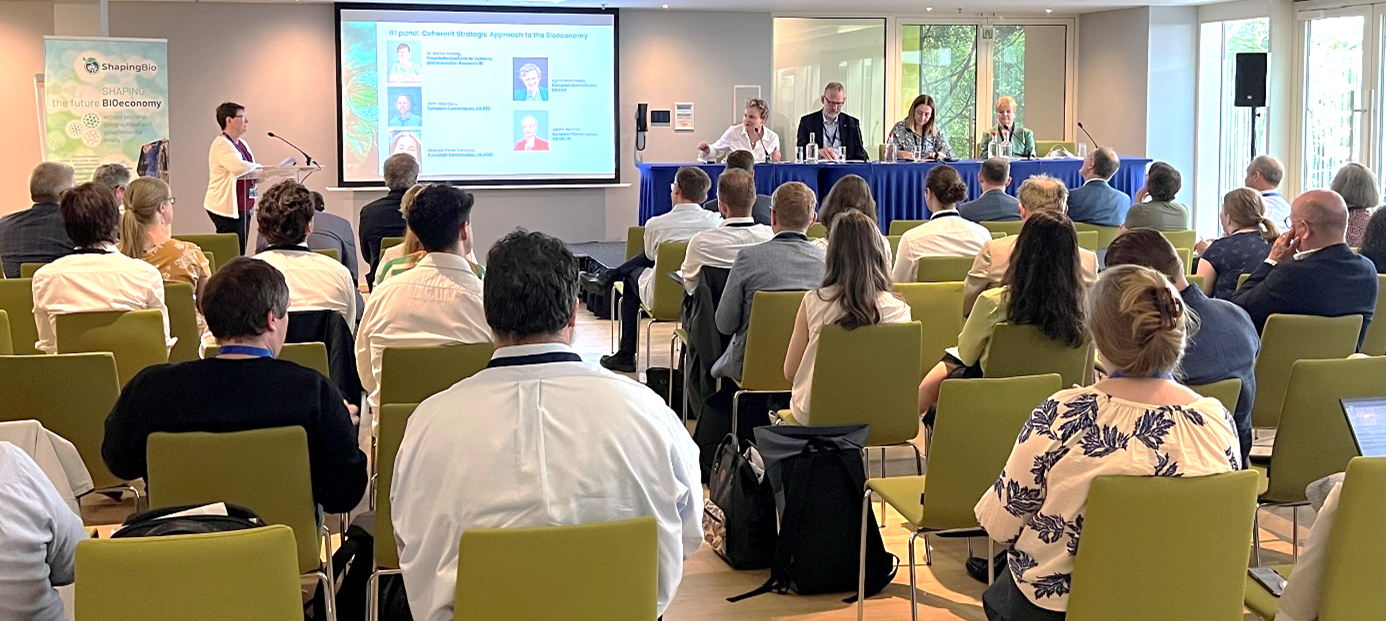EU Project ShapingBio Offers Recommendations for a Competitive EU Bioeconomy
To unlock the full potential of bio-based innovations, a new policy brief calls on the European Commission to standardise coordination in this area, strengthen funding and improve market conditions.
The EU-funded ShapingBio project has released a comprehensive policy brief outlining key recommendations to support the European Commission in creating an optimal framework for a sustainable and competitive European bioeconomy. The recommendations feed into the upcoming New EU Bioeconomy Strategy, expected to play a crucial role in advancing Europe’s transition towards a circular, climate-neutral economy.
The policy brief emphasizes the following urgent needs and provides practical recommendations on how to address them:
- Stronger strategic cooperation across Member States and regions to unlock the EU’s full bioeconomy potential, by improving horizontal and vertical coordination and intensifying dialogues between actors from the fields of education, the economy, the natural environment, civil society and the political system
- Improved access to financing across the innovation chain, helping companies scale from “lab to fab,” with funding conditions better aligned to innovators’ needs, funding instruments for activities on higher TRLs (Technology Readiness Level), and the expansion of public-private partnerships
- Harmonised market conditions and demand-side policies to accelerate the deployment of all segments of bio-based products.
A thriving bioeconomy is central to tackling climate change, biodiversity loss, resource scarcity, and other major societal challenges. With its cross-sectoral scope, the bioeconomy provides sustainable alternatives to fossil-based systems and fosters innovation in areas such as food, materials, energy, and industrial processes.

The recommendations are based on extensive engagement with nearly 2,000 key bioeconomy stakeholders – including policymakers, industry leaders, researchers, and civil society representatives – through surveys, interviews, and 45 events held between 2022 and 2025.
Sven Wydra, coordinator of Business Unit Bioeconomy and Life Sciences at Fraunhofer ISI and coordinator of the ShapingBio project, underlines the importance of collective action: “Europe has strong assets in the bioeconomy – from diverse biomass resources to leading research and innovation. But fragmented strategies and uneven innovation capacities hold us back. To stay globally competitive and deliver on sustainability goals, we need coherent policies that promote stronger collaboration across all Member States, better financing, and the securing of Europe’s leadership in sustainable biomanufacturing. Our recommendations aim to ensure that Europe not only develops bio-based solutions, but also creates the right conditions for them to thrive.”
The policy brief is only one of Shaping Bio’s publications, highlighting concrete steps for the European Commission, Member States, and other stakeholders to translate strategic goals into actionable measures. Comprehensive in-depth analyses, accompanied by more detailed recommendations, have been developed to take stock of the current state of the bioeconomy in all EU Member States, on policy and governance, applied R&D and technology transfer, cross-sectoral collaboration and financing. The full reports and recommendations are available online.
The ShapingBio project’s insights have been well received by the European Commission policy officers who are preparing the New EU Bioeconomy Strategy. With bio-based innovation at the heart of Europe’s Clean Industrial Deal and Circular Economy Action Plan, implementing these recommendations could strengthen Europe’s resilience, competitiveness, and sustainability in the decades ahead.
About ShapingBio
ShapingBio is an EU-funded project coordinated by Fraunhofer IS with the overall aim to support and accelerate bioeconomy innovation and the deployment of new knowledge in the EU and its member states.
ShapingBio aims to provide evidence based and concrete information and recommendations for better policy alignment and stakeholder actions to realise the cross-sectoral potential of the bioeconomy and to reduce the fragmentation across biobased sectors and the food system, as well as in policies across regions, domains and governance levels.
Always up-to-date
The Fraunhofer Institute for Systems and Innovation Research ISI analyzes the origins and impacts of innovations. We research the short- and long-term developments of innovation processes and the impacts of new technologies and services on society. On this basis, we are able to provide our clients from industry, politics and science with recommendations for action and perspectives for key decisions. Our expertise is founded on our scientific competence as well as an interdisciplinary and systemic research approach.